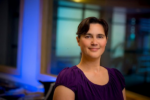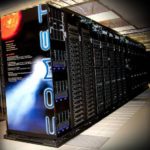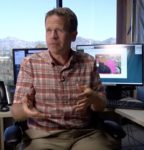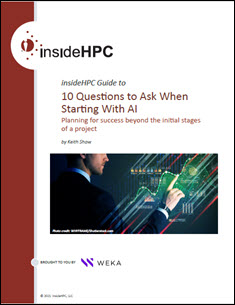SAN DIEGO and GRENOBLE, France – Feb. 20, 2024 – University of California San Diego and CEA-Leti scientists report they have developed a ground-breaking piezoelectric-based DC-DC converter that unifies all power switches onto a single chip to increase power density. This new power topology, which extends beyond existing topologies, blends the advantages of piezoelectric converters […]
UCSD and CEA-Leti Paper: DC-DC Converter Unifies Power Switches on a Single Chip
UCSD Professor Leads COVID-19, Recommendation System Research Using ‘Hyperdimensional Computing’
Intel Labs has released a case study involving a professor at the University of California-San Diego, who for the past five years has led research efforts into what’s called hyperdimensional computing aimed at solving memory and data storage challenges. Hyperdimensional computing (HD) is a type of machine learning inspired by observations of how humans and […]
UC San Diego Students Team for SC22 HPC Student Cluster Competition
The 2022 Supercomputing Conference (SC) organizers recently announced that a team of students from the San Diego Supercomputer Center (SDSC) and Computer Science & Engineering (CSE) Department at UC San Diego will be among the 10 groups selected to participate in the 2022 Student Cluster Competition (SCC) in mid-November. The six 2022 team members are […]
Argonne, University Researchers Team to Make Data FAIR for AI
In a new study, researchers from Argonne National Laboratory, Massachusetts Institute of Technology, University of California San Diego, University of Minnesota, and University of Illinois at Urbana-Champaign have laid out new practices to guide the curation of high energy physics datasets that makes them more FAIR — more findable, accessible, interoperable and reusable. Data is the lifeblood […]
Modeling on SDSC’s Comet Supercomputer Reveals Findings on Pregnancy-related Hypertension
According to the Centers for Disease Control and Prevention (CDC), preeclampsia, or pregnancy-related hypertension, occurs in roughly one in 25 pregnancies in the United States. The causes are unknown and childbirth is the only remedy, which can sometimes lead to adverse perinatal outcomes, such as preterm delivery. To better understand this serious pregnancy complication, which reduces blood supply to the fetus, researchers used Comet at the San Diego Supercomputer Center (SDSC) at UC San Diego to conduct cellular modeling to detail the differences between normal and preeclampsia placental tissue.
SC20 Announces Record Number of Teams for Annual Student Cluster Competition
This year’s Student Cluster Competition at SC20 will include two firsts: it will involve the most number of teams (19) in the competition’s 14-year history, and it will for the first time be held completely virtually. “This year’s Student Cluster Competition will be very different, as it will be 100 percent cloud-based,” explained SC20 SCC […]
UCSD’s Dr. Larry Smarr Named Tech Evangelist at Kazuhm
August 19, 2020—Kazuhm, a developer of technology and tools for maximizing IT efficiency, today announced that Dr. Larry Smarr will provide support to the Kazuhm leadership team as Technology Evangelist. With over 40 years of experience driving information technology innovation in academia, government agencies, and private industry, Dr. Smarr brings a practical vision for the […]
Thomas Sterling Eulogizes Rich Brueckner, Ann Redelfs, Steve Tuecke, Lucy Nowell: 4 Leaders Lost to the HPC Community
At his annual keynote address closing out the ISC 2020 conference, Thomas Sterling, Professor of Intelligent Systems Engineering at the University of Indiana, eulogized four members of the HPC community who died over the past year. Here are excerpts from his remarks: It’s my sad duty to, but certainly a responsibility, to note some of […]
Intel, NSF Name Winners of Wireless Machine Learning Research Funding
Intel and the National Science Foundation (NSF), joint funders of the Machine Learning for Wireless Networking Systems (MLWiNS) program, today announced recipients of awards for research projects into ultra-dense wireless systems that deliver the throughput, latency and reliability requirements of future applications – including distributed machine learning computations over wireless edge networks. Here are the […]
Supercomputing the Future Path of Wlldfires
In this KPBS video, firefighters in the field tap an SDSC supercomputer to battle wild fires. Fire officials started using the supercomputer’s WIFIRE tool in September. WIFIRE is a sophisticated fire modeling software that uses real-time data to run rapid simulations of a fire’s progress. It helps to see where the fire is likely going to go,” said Raymond De Callafon, a UCSD engineer who worked on the project. “So, a fire department can use this for planning purposes with their limited resources. It can also be used to plan, maybe their aircraft that will go over. Where to put the fire out.”












